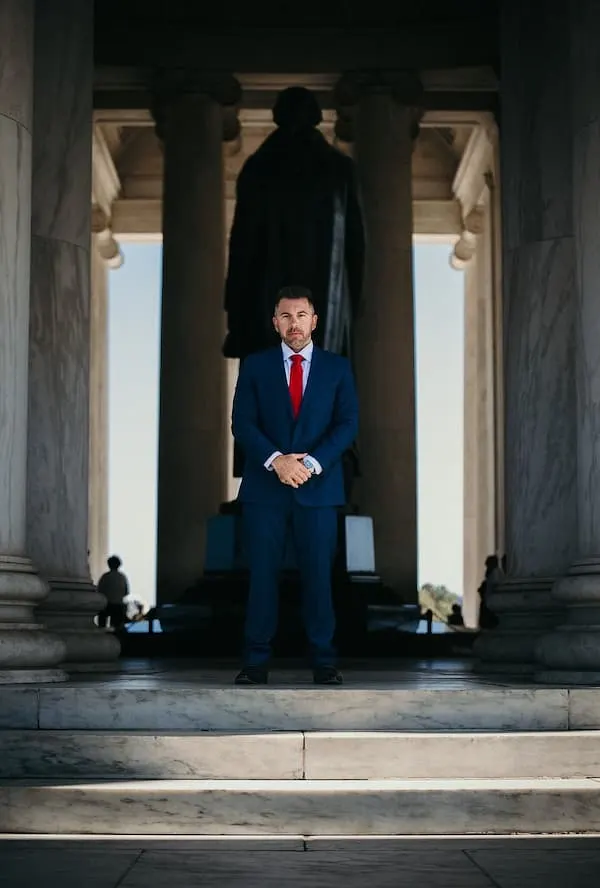
Call Us Today For a Free Consultation 312-800-1626 312-800-1626
Call Us Today For a Free Consultation 312-800-1626 312-800-1626


If you or a loved one are facing criminal charges in the Chicago area, you know the gravity of the situation. The complexities of the Illinois criminal justice system, especially within Cook County, can be overwhelming.
Finding the right Chicago criminal defense lawyer isn’t just about hiring an attorney, it’s about securing a dedicated advocate who will fight to protect your freedom, your reputation, and your future.
A criminal charge can threaten everything you’ve worked for. From the moment you are in contact with law enforcement, every decision you make is critical. Whether you’re dealing with state or federal criminal cases, a knowledgeable criminal defense attorney can make a significant difference in the outcome.
Contact Ktenas Law today for a free and confidential consultation to discuss your case.

A criminal conviction can lead to various penalties, which depend on the type of offense and the specific details of your case. Understanding these consequences is critical when facing criminal charges.
Fines: You may be ordered to pay a specific amount of money, ranging from hundreds to thousands of dollars.
Probation: Instead of jail time, the court may place you on probation. This requires you to follow specific rules, such as checking in with a probation officer, attending counseling, or performing community service. Violating these conditions can lead to more severe penalties.
Incarceration: Serious offenses often result in jail or prison time. Misdemeanors typically lead to shorter sentences (less than one year), while felonies and federal crimes can result in much longer sentences.
Restitution: You may be ordered to pay victims for any financial losses or damages caused by the crime. This helps compensate them for the harm you caused.
Loss of Civil Rights: A felony criminal conviction can result in the loss of civil rights, such as the right to vote or own a firearm.
Registration Requirements: For specific crimes, such as certain forms of sexual assault, you may be required to register as a sex offender. Failure to comply with these strict rules can lead to further legal trouble.
Impact on Employment and Housing: A criminal record can create long-term difficulties in finding a job or securing housing due to background checks and the social stigma associated with a conviction.
The path from an arrest to a final verdict is full of potential pitfalls. The prosecution’s case is built on the premise of proving your guilt, and their resources are extensive. Without an experienced defense attorney, you risk being at a serious disadvantage.
The legal team at Ktenas Law understands the strategies used by prosecutors and Police officers in the Chicago justice system. We know how to challenge evidence, question witness testimony, and identify procedural errors, such as illegal search and seizure.
Our goal is to build the strongest possible defense strategies to either get your criminal charges dismissed, secure an acquittal, or negotiate a favorable plea bargain.
Navigating the Circuit Court of Cook County is a unique and intricate process. It is one of the largest unified court systems in the nation, and its procedures and players are distinct.
The criminal defense attorneys at Ktenas Law are deeply familiar with the judges, prosecutors, and local rules that govern criminal cases in Cook County.

This specific local knowledge is a powerful tool in a client’s defense. It allows us to anticipate the prosecution’s moves, negotiate effectively, and present a compelling case to a judge or jury, whether you opt for a bench trial or a full jury trial.
Facing allegations of a crime is an intensely personal and terrifying experience. When you’re searching for legal counsel, it’s natural to be concerned about the fees, which can range from a few thousand dollars for a misdemeanor to tens of thousands for a felony, or even more depending on the case’s complexity.
Related: Cost Of Hiring A DUI Lawyer
But choosing a lawyer is not like buying a product; you’re not just comparing price tags. You are entrusting someone with your future, your reputation, and your freedom.
The money you spend on a seasoned, reputable lawyer is an investment in securing the best possible outcome for your situation. A less expensive attorney might seem appealing at first, but if their inexperience leads to a less favorable result, the long-term emotional and financial costs can be far greater.
An accomplished attorney brings a wealth of knowledge and a track record of success. They know the local courts, the prosecutors, and the strategies that work.
This expertise allows them to navigate the legal process with confidence, challenge evidence effectively, and build a powerful defense on your behalf.
Choosing a lawyer who is deeply committed to your case, regardless of the complexity, is a decision that will pay dividends far beyond the initial cost. Your peace of mind and your future are priceless, and they deserve the highest level of advocacy you can find.
Your choice in legal counsel is the single most important decision you can make right now. With so much on the line, you need an advocate with the experience and dedication to fight for you like our fierce attorneys at Ktenas Law.
Ktenas Law provides comprehensive criminal defense for a wide range of criminal charges, from minor misdemeanors to the most serious felonies. No matter the charge, our commitment is to provide an aggressive and thorough defense.

A Driving Under the Influence (DUI) charge in Chicago can result in severe consequences, including a prison sentence, hefty fines, and a driver’s license suspension. The prosecution’s case often relies on field sobriety tests and chemical reports.
Ktenas Law’s DUI Defense involves meticulously examining the legality of your traffic stop, the administration of tests, and the accuracy of any chemical testing.
Our attorneys are experienced Chicago DUI Attorneys dedicated to protecting your driver’s license and preventing a criminal conviction.
Drug charges in Chicago can range from simple possession to serious offenses like drug trafficking. A Felony Drug Possession charge carries a significant risk of a lengthy prison sentence.
Our defense strategies focus on protecting your constitutional rights, including fighting against illegal search and seizure, to weaken the prosecution’s case.
Being accused of a violent crime like First-Degree Murder, sexual assault, domestic abuse, or attempted murder is a life-altering experience. These are the most serious criminal cases, and they demand an equally serious defense.
As your lawyers, Ktenas Law works with private investigators and forensic experts to build a robust defense. We meticulously analyze evidence and aggressively challenge the prosecution’s claims to ensure you receive a fair trial.
Property crimes, such as retail theft and burglary, are common but can still lead to a criminal record and jail time. Even a minor criminal charge can have long-lasting effects on your ability to secure employment or housing.
We provide the legal help you need to navigate these charges and work to mitigate their impact on your life. Our goal is to avoid a permanent criminal conviction and the resulting criminal record.
Related: Penalties for vandalism in Illinois
Even a seemingly minor traffic violation like a Reckless Driving charge or accumulated traffic tickets can lead to a license suspension or a criminal charge.
Ktenas Law also represents clients facing misdemeanor charges, including those related to domestic abuse and other lower-level criminal cases.
Our legal knowledge allows us to handle these cases efficiently, often resolving them without a full trial and minimizing the impact on your life.
Other types of criminal offenses we handle:
From the moment you are facing a criminal charge, the Ktenas Law team is here to provide guidance and support.
Your first step is to seek a consultation. During this meeting, a defense attorney will listen to your story, review the details of your arrest, and explain your rights. We will provide an honest assessment of your situation and outline the potential paths forward within the criminal justice system.
Our work begins with a thorough investigation. We examine the police report, review all evidence collected by law enforcement, and work with our network of private investigators to uncover additional facts.
We challenge any evidence obtained through illegal search and seizure and work to expose weaknesses in the prosecution’s case.
We will be by your side through every court appearance. We handle all communication with the prosecution, negotiate a potential plea bargain if it is in your best interest, and prepare for trial.
Our skilled trial attorneys are prepared to advocate on your behalf in front of a judge or jury, presenting our defense strategies with clarity and conviction.
Related: 5 things your criminal defense attorney should be doing
If you are facing criminal charges in Chicago, your freedom and your future are on the line. The time to act is now. The sooner you retain a Chicago criminal defense lawyer, the more time your defense attorney has to investigate, prepare, and build a strong defense.
Don’t wait for your situation to worsen. Schedule a confidential consultation with Ktenas Law today to discuss your case and learn how our legal experience can help you. We are ready to be your ally in the criminal justice system.
Call us now to schedule a consultation and begin building your defense.


Alexander Ktenas is a respected trial attorney in the Chicagoland area, known for his tenacious work ethic and deep knowledge of the law. As a managing partner at Ktenas Law, he has successfully conducted hundreds of trials, applying an aggressive trial strategy to defend his clients in a variety of cases, primarily in criminal and DUI defense.
Attorney-Approved Content: A collaboration between AI, legal editors, and experienced attorneys, delivering accurate, human-verified content.



